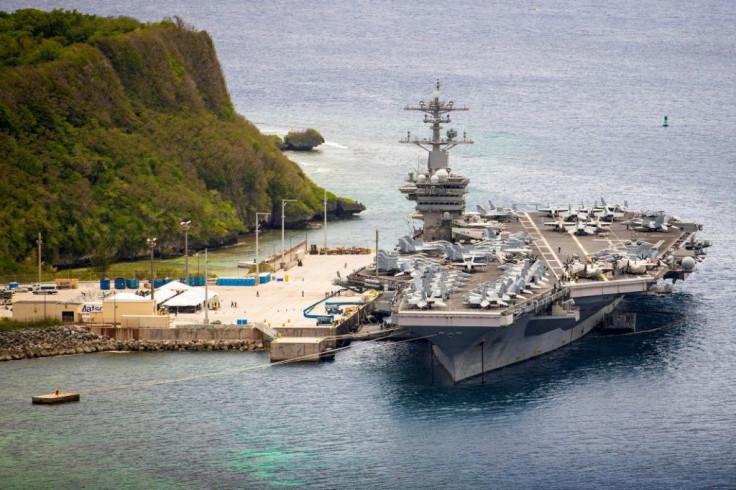Advantage China: US Allies Fear Beijing's Wrath, May Choose Not To Host Missiles
KEY POINTS
- Hosting the missiles could signal membership in an anti-Chinese coalition
- An alternative is to jointly develop or sell missiles to an ally country
- Another option would be to base them on Guam, a U.S. overseas territory
The allies of the U.S. in the Indo-Pacific region would not be willing to permanently host Washington's ground-based intermediate-range missiles for the fear of provoking China, a think tank report said.
The report published by U.S.-based Rand Corporation said domestic political considerations and their economic ties to China would stop the U.S. allies, including Australia, Japan, the Philippines, South Korea and Thailand, from doing so.
Hosting the missiles could be seen "as signaling membership in an anti-Chinese coalition" or exposing oneself to Chinese retaliation in the event that missiles are fired at China during a war.
The U.S. has been hoping to develop and deploy Ground-Based Intermediate-Range Missiles (GBIRMs) in the Indo-Pacific region ever since it withdrew from the Intermediate-Range Nuclear Forces (INF) Treaty in 2019. China was never signatory to the INF Treaty, which raised questions as to whether the U.S. could deploy such missiles in the region. Reports said China has developed DF-21 – dubbed the "carrier killer" – and the nuclear-capable DF-26s.
The study, authored by senior political scientist Jeffrey W. Hornung, said that the U.S. has other alternatives, including jointly developing or selling the missiles to an ally. This way, that country can control its own system; deploying them to the region in times of crisis; or peacetime rotational deployments.
Hornung added in the report that the other option would be to base them on Guam – a U.S. overseas territory – or one of the small Pacific island nations that signed the Compact of Association with Washington. Though the U.S. does not have to worry about the governments of small Pacific islands refusing to host the missiles, its deployment would still be met with some opposition.
"Some of the local population in the Republic of the Marshall Islands opposes the island’s current hosting of the Ronald Reagan Ballistic Missile Defense Test Site on the Kwajalein Atoll. Should the United States seek to introduce GBIRMs on these islands, which would result in further increases in personnel and infrastructure, similar opposition could occur," the study added.
But, the more plausible option is to help Japan in its efforts to develop and deploy an arsenal of ground-based, anti-ship standoff missile capabilities. Though they still won't be able to strike deep into China, these missiles can cover ship movements in the Taiwan Strait, in case of a conflict.
That said, despite being a close ally of U.S., Japan might think twice about hosting the system. Cheung Mong, an associate professor at Waseda University in Japan, told South China Morning Post that Japanese Prime Minister Fumio Kishida might welcome the other alternatives because the new government does not want to provoke Beijing.

© Copyright IBTimes 2024. All rights reserved.




















